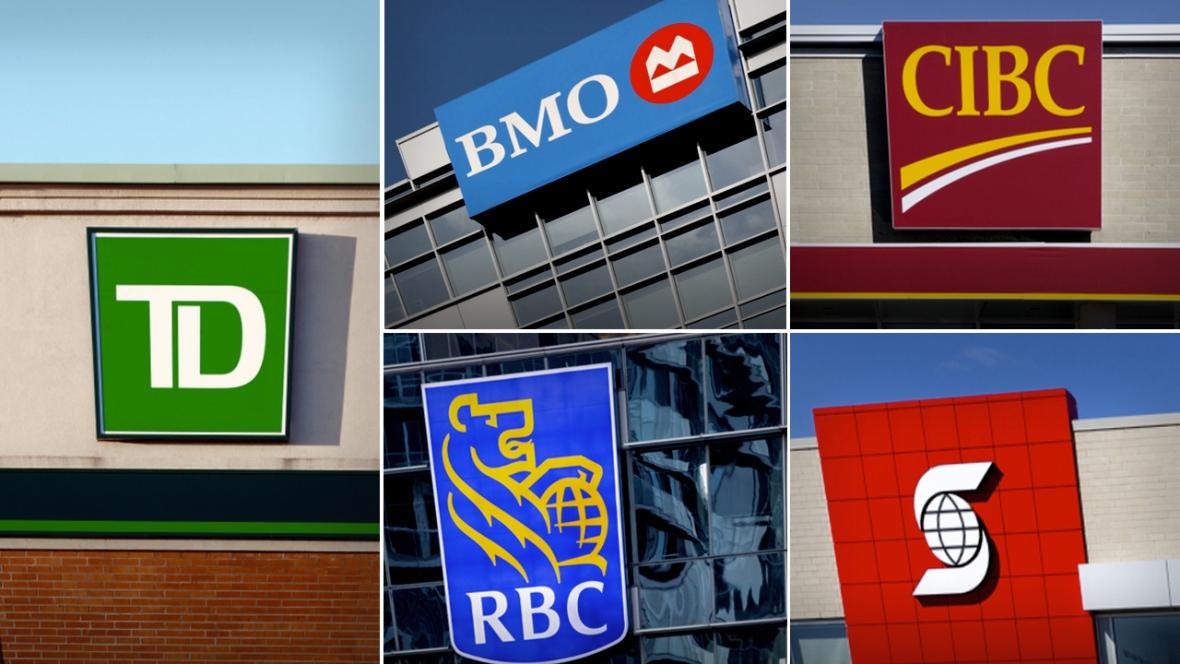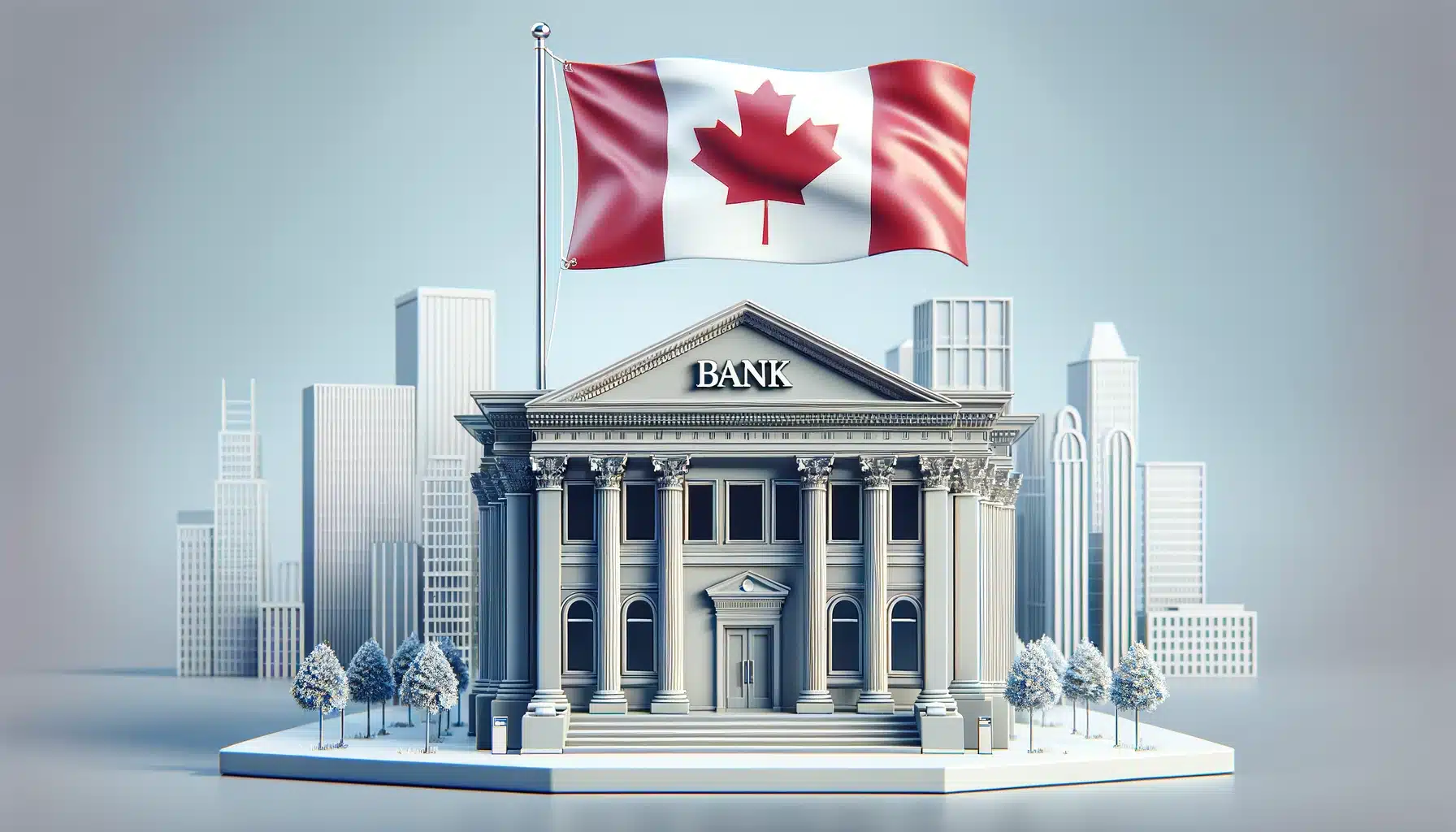
 Immigration
Immigration
Are you wondering which Canadian bank will hold your maple leaf-earned dollars best? Are you curious about the best banks in Canada where you can entrust your hard-earned maple leaf currency? Whether you’re a newcomer navigating the Great White North’s financial scene or a local looking for a switch, finding the right bank is crucial. This blog promises to guide you through the snowy forest of Canada’s banking system, ensuring you emerge with a wallet as robust as the country’s famed oak.

SayHomeCanada Immigration understands that moving to a new country involves not just finding a new home but also choosing a financial institution that best fits your needs. Let’s explore some of Canada’s top banking options, their offers, and what makes them stand out.
Let’s delve into some of Canada’s biggest banks, their offers for newcomers, and what distinguishes them. From CIBC phone number in Canada to RBC’s credit score check, we’ve got you covered with insights into the best chequing accounts and investment opportunities offered by banks in Canada.
Canada’s banking sector is diverse, featuring both large multinational banks and smaller local institutions. Among these, the biggest banks in Canada—RBC (Royal Bank of Canada), TD (Toronto-Dominion Bank), Scotiabank, BMO (Bank of Montreal), and CIBC (Canadian Imperial Bank of Commerce)—stand out as the best banks in Canada.
The “Big Five” banks in Canada—RBC (Royal Bank of Canada), TD (Toronto-Dominion Bank), Scotiabank, BMO (Bank of Montreal), and CIBC (Canadian Imperial Bank of Commerce)—are often considered the best banks in Canada due to their extensive services, reliability, and accessibility. When selecting a bank, consider its presence in your area, the availability of English and French (and possibly other language) customer service, and the specific newcomer or international student offers available.

For newcomers, exploring RBC’s newcomer offer and finding the best chequing account in Canada are crucial steps towards financial stability. Furthermore, reviewing a comprehensive list of banks in Canada can provide insights into the available options. Whether seeking traditional banking services or specialized investment solutions, Canada’s banking sector offers a plethora of choices to meet diverse needs.
Read More: Caregiver Program Canada
Royal Bank of Canada (RBC)
Features: Extensive branch and ATM network, robust online and mobile banking, and comprehensive financial products.
Benefits: The RBC Newcomer offer includes a free chequing account for the first year and the ability to check your credit score.

Toronto-Dominion Bank (TD)
Features: Wide variety of account options, excellent online banking, and TD app.
Benefits: TD offers a welcome package for newcomers, including a no-monthly-fee chequing account for six months and a wide range of credit card options.
Scotiabank
Features: Strong international presence, great for travelers, and partnerships with entertainment and lifestyle rewards.
Benefits: Scotiabank’s StartRight Program is tailored for newcomers, providing them with essentials such as free chequing accounts and credit cards even without a Canadian credit history, along with a rewarding rewards program.
Bank of Montreal (BMO)
Features: Innovative banking technology and a variety of account options.
Benefits: The BMO NewStart program provides newcomers with no monthly fee for one year on chequing accounts, plus a wide range of credit solutions.
Canadian Imperial Bank of Commerce (CIBC)
Features: Competitive banking solutions and an easy-to-use online platform. CIBC phone number in Canada offers excellent customer support. Moreover, accessing the CIBC phone number in Canada ensures customers receive excellent customer support when needed.
Benefits: CIBC offers a Welcome to Canada package that includes a chequing account with no monthly fees for a year, a credit card with rewards, and more.
Each of these banks offers unique advantages depending on your financial needs, whether you’re looking for the best chequing account in Canada, investment opportunities, or services tailored for newcomers. It’s essential to review and compare their offerings, fees, and eligibility requirements to find the best fit for your situation.
Read More: Proof of work experience express entry
When navigating the Canadian banking landscape, it’s crucial to explore the best chequing account in Canada to facilitate daily transactions seamlessly. The two primary account types to consider are chequing and savings accounts. A chequing account is essential for daily transactions, paying bills, and receiving salaries.

On the other hand, a savings account is better suited for setting aside money and earning interest over time. Some banks offer hybrid accounts combining the features of both, providing flexibility for managing your finances. Hence, when compiling your banks in Canada list, prioritize those that provide such adaptable solutions, ensuring optimal financial management.
Read More: Migrating to Canada from Nigeria
When opening a bank account in Canada, you will generally need the following:
Identification: Two pieces of ID are typically required. At least one should be a government-issued identification with your photograph, such as your passport, Permanent Resident card, or a foreign driver’s license.
Social Insurance Number (SIN): While not always mandatory for opening a bank account, it’s crucial for tax purposes if you intend to earn interest on your account balances.
Proof of Address: This can be a utility bill, lease agreement, or any official document bearing your name and Canadian address. It helps the bank verify your residence in Canada.
Immigration Documents: Presenting documentation of your immigration status, such as a work or study permit, can significantly aid in accessing tailored newcomer banking packages offered by the best banks in Canada. This ensures that newcomers can leverage exclusive benefits like the RBC newcomer offer or inquire about essential services like the CIBC phone number in Canada to facilitate their transition smoothly.
Read More: Immigrate to Canada Without Job Offer
Banks in Canada offer numerous benefits tailored to meet the needs of newcomers, integrating valuable offers to help you settle. Among the best banks in Canada, institutions like RBC, CIBC, and others have special offers for newcomers, including the RBC Newcomer offer, which might waive monthly fees, offer free international money transfers, and more.
Canadian banks offer numerous benefits tailored to meet the needs of newcomers, integrating valuable offers to help you settle:
Newcomer Banking Packages: Institutions like RBC, CIBC, and others have special offers for newcomers, including the RBC Newcomer offer, which might waive monthly fees, offer free international money transfers, and more. These packages are designed to make the transition smoother, offering financial products without a Canadian credit history.
Access to Credit: Building a credit history is crucial in Canada. Newcomer packages often include credit card options without a Canadian credit history, helping you start building your credit score right away.
Educational Resources: Many banks in Canada provide financial literacy resources to help newcomers understand the Canadian banking system, manage their finances, and plan for the future. This can be crucial for making informed decisions and achieving financial stability.
Multilingual Services: Recognizing Canada’s diverse population, biggest banks in Canada like CIBC (contactable through the CIBC phone number Canada) offer services in multiple languages, ensuring you can communicate effectively and understand the financial products available to you. The biggest banks in Canada provide robust online and mobile banking platforms, allowing you to manage your accounts, pay bills, and transfer money conveniently from anywhere.
Online and Mobile Banking: The best banks in Canada provide robust online and mobile banking platforms, allowing you to manage your accounts, pay bills, and transfer money conveniently from anywhere.
Read More: Ontario PNP Latest Draw
Investment Advice: For those interested in saving or investing, Banks in Canada offer various investment products. Newcomers can benefit from personalized advice on investment banks in Canada, mutual funds, savings accounts, and other instruments to grow their wealth.
These services make Canadian banks some of the best banks in Canada for newcomers looking to establish themselves financially in the country.
Read More: 10 Highest Paying Jobs in Canada
Monthly Account Fees: Among the best banks in Canada, it’s common for institutions to charge a monthly fee for maintaining a chequing account. Banks in Canada often charge a monthly fee for maintaining a chequing account. These fees can range from $4 to $30, depending on the services included. For example, high-end accounts with a $30 monthly fee might offer unlimited transactions and additional perks like free checks or annual fee rebates on credit cards.
Transaction Fees: Some accounts offer a limited number of free transactions per month, after which fees apply. Transactions include ATM withdrawals, bill payments, and debit purchases. The fees per additional transaction can range from $1 to $1.50.
ATM Fees: Using an ATM not affiliated with your bank can incur fees, typically around $1.50 to $3.00 per transaction. Some premium accounts offer rebates on these fees.
Overdraft Fees: If you spend more than what’s in your account, banks charge an overdraft fee. This fee can be substantial, around $45 per occurrence, emphasizing the importance of managing your account balance carefully.
Special Offers for Newcomers: Banks in Canada have special programs for newcomers, like the RBC Newcomer Advantage, offering waived monthly fees for a limited time, a free small safety deposit box, and more. Eligibility for these offers usually requires proving newcomer status.
Eligibility for these offers usually requires proving newcomer status. Among the biggest banks in Canada, RBC stands out with its RBC newcomer offer, providing exclusive benefits tailored to newcomers’ needs.

Read More: Notary Services in Canada
Choosing the right bank as a newcomer to Canada can significantly influence your journey towards establishing a stable and prosperous life in your new home country. The “Big Five” banks in Canada—RBC, TD, Scotiabank, BMO, and CIBC—offer various features and benefits tailored to meet the unique needs of new immigrants, from comprehensive online banking services to newcomer packages designed to help you build your credit history and manage your finances effectively. Each bank has its strengths, and selecting the one that aligns with your financial goals and lifestyle can set you on a path to financial success in Canada.
For detailed support in selecting the best bank in Canada that meets your needs and navigating the broader financial landscape in Canada, contact SayHomeCanada Immigration. Our expert team is dedicated to assisting newcomers in making informed decisions, ensuring a smooth transition to life in Canada.
When choosing a bank in Canada, it’s crucial to evaluate several factors to ensure that your banking needs as a new immigrant are met. Look into the types of accounts offered to find one that matches your financial activities, whether you need a chequing account for daily transactions or a savings account for future plans. Investigate the fee structure for account maintenance, transactions, and ATM use to avoid unnecessary charges. Access to online and mobile banking is essential for managing your finances on the go, especially in a new country.
Consider the bank’s network of branches and ATMs for convenience. Special newcomer offers, such as waived fees or assistance in building a credit history in Canada, can provide significant value. Lastly, assess the bank’s customer service, including language support and availability. For personalized assistance in navigating these considerations, SayHomeCanada Immigration can guide you through selecting the right banking partner.
Yes, pre-arrival bank account opening is an option offered by some Canadian banks, such as RBC and CIBC. This service allows you to sort out your financial arrangements ahead of your move, ensuring a smoother transition upon your arrival.
You’ll typically need to provide your immigration documents and identification electronically. For assistance with this process and to understand the specific requirements of each bank, SayHomeCanada Immigration is available to help you get started with your financial journey in Canada even before you land. Contact us today!
Canadian banks have tailored newcomer offers to ease the financial transition for new immigrants. These may include waived monthly account fees for a specified period, eligibility for a credit card without a Canadian credit history, attractive interest rates on savings accounts, and complimentary international money transfer services.
All banks in Canada has their unique set of offers, making it important to compare and choose the best one for your financial situation. For expert advice on evaluating these offers, SayHomeCanada Immigration can provide the insight you need to make an informed decision.
Building a credit history in Canada is crucial for your financial future, enabling you to qualify for loans, mortgages, and better credit card offers. Starting with a bank account and a credit card is an effective approach. Use your credit card for regular purchases and ensure timely payments to build a positive credit history.
Biggest Banks in Canada like RBC also offer services to monitor and improve your credit score, a valuable resource for newcomers. For comprehensive guidance on establishing and maintaining a strong credit history in Canada, SayHomeCanada Immigration offers support and resources tailored to your needs.
Understanding the array of banking products and choosing the right ones can be daunting for newcomers. For personalized advice and support in navigating the Canadian banking system, SayHomeCanada Immigration is your go-to resource. Reach us today for detailed information.
Their team can help clarify your banking options, ensuring you select products that align with your financial goals as you settle into your new life in Canada.
Thank you for the response .
Let's Connect